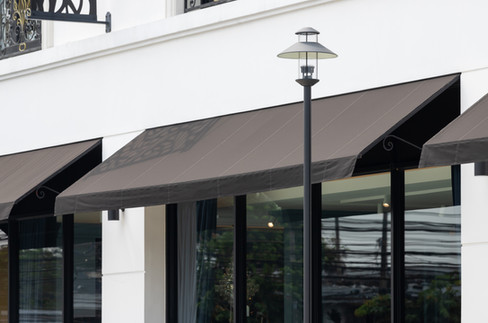COMMERCIAL OR RESIDENTIAL - WHICH IS A BETTER INVESTMENT?
- coccogd
- Mar 7, 2023
- 3 min read
Both commercial and residential properties can be great investment, but is there a better one out of the two?
As much as both investment options can offer you great financial boost, they do come with risks and factors that must be considered in order to find out which one would be a better option for you.

Rental Yields
First thing is first, so how much can we actually gain from investing in residential vs commercial property?
Generally speaking, commercial properties tend to bring rental yields of 5-12% per annum while residential properties typically offer 1-4%. Commercial investment does offer much more rental yields overall, and is more likely to lead to positive cashflow faster compared to residential investment.
In addition, commercial contracts generally include annual rent increases over the lease term:
Fixed Annual Increase: Generally between 2-4% per annum
CPI Increase: Annual increases linked to the Consumer Price Index (CPI)
Some lease agreements may utilise both of the above
Residential lease contracts on the other hand do not include fixed annual increases, and these are usually negotiated between the landlord and the tenant at the end of each lease term.
Lease Lengths
Lease length is another main difference between commercial and residential properties and should be considered by the investors.
Commercial properties including office space, warehouse, retail and much more, have longer lease lengths than residential properties being a house, unit etc. Commercial property values are strongly determined by the lease lengths, and they usually start from 5 years up to 10, 15 and even 20 years. Residential property values however, are not impacted by lease lengths and they generally have a lease length of 1-2 years.
As good as longer lease length sounds for commercial properties, it often comes with risks and hardships such as difficulty replacing commercial tenants, being more vulnerable to economic changes just to name a few. In saying this, you can expect much longer income security by purchasing a commercial property especially if you can secure a good, reliable tenant.
Tenant Types
Tenant types is another important factor to consider when deciding over commercial or residential property to invest in. Commercial tenants use the property to run their business, meaning they are more likely to pay more attention to taking care of the property. As well, commercial tenants have a critical role in determining the property value, and if you can attract a 'bigger brand' tenant, this will have a positive impact on the property value, as well as minimise risks of tenant missing rental payments, going into liquidation or closing doors permanently.
Residential tenants are renting the property for their everyday living needs, and do not impact on the property value. In saying this, residential properties are usually in demand much more than commercial properties, and would be an easier process finding or replacing tenants if need be.
Maintenance Fees
All properties will generate maintenance costs whether commercial or residential. Commercial properties tend to have much higher maintenance costs such as getting aircon ducts cleaned regularly, fire safety checks and emptying out bigger bins etc. In addition, there are costs involved with council rates, land tax, insurance and much more.
Residential properties also require similar types of payment to maintain the property, although the fees related could be much less than that of a commercial property. In saying this, fees for maintaining residential properties are usually paid by the landlord and not the tenant, while commercial tenants can agree to sign net leases where they are responsible for paying all the outgoings on top of their rent. This is a huge advantage for commercial investors.

Finance
2021 Census data shows a home ownership rate of 67%, meaning a lot of Australians have already become home owners. Australian banks usually require a 20% deposit on most of residential properties, which makes it possible for buyers to purchase their homes with just $80,000-$100,000 (notwithstanding the increase in property value during the Pandemic & in current years).
On the other hand, commercial properties are often a lot harder to purchase as an individual as banks will usually ask for 30-40% minimum deposit. This is believed to be due to commercial properties having higher risks than residential properties. In addition, commercial loans generally attract higher interest rates together with higher administrative costs.
Commercial and Residential properties can both be great investment options when pros and cons have been thought about. Depending on which type of investor you are, you may favour one or the other.
While residential properties being a simpler investment with guaranteed income that is consistent, commercial properties can offer a lot more rental yield and large return despite the risks involved. For residential properties, there is also a bonus of capital growth especially where the demand for homes is getting higher and higher. However, commercial properties can offer great benefits such as longer lease terms and availability of signing a net lease over gross lease where the maintenance fees can be put aside for the tenants.
So, what do you think? Which one suits you more?











Comments